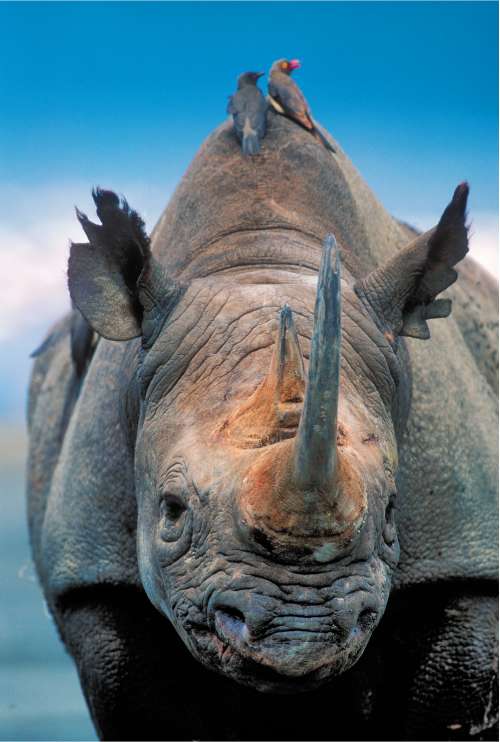He's black, and he's back! Private enterprise saves southern Africa's rhino from extinction

A pioneering scheme which allows private landlords to own and breed wild rhinoceroses has succeeded in bringing one of Africa's most majestic animals back from the brink of extinction, conservations will announce today.
In 1960, an estimated 100,000 southern black rhinos roamed the plains of southern Africa. Poaching and the destruction of the animals' natural habitat cut their number to 2,410 in 1995.
The decline has been reversed: the International Union for Conservation of Nature (IUCN) will announce this morning that more than 4,000 southern black rhinos can be found in Zimbabwe, South Africa, Namibia, and Kenya, a landmark signifying stability.
Numbers of southern whites have also increased, from 14,540 in 2005 to 17,480 at the end of last year.
"Effective law enforcement has become much easier now that the animals are largely privately owned," said Dr Richard Emslie, a scientific officer with responsibility for rhinos at the IUCN.
"We have been able to bring local communities into the conservation programmes. There are increasingly strong economic incentives attached to looking after rhinos rather than simply poaching: from eco-tourism or selling them on for a profit. So many owners are keeping them secure. The private sector has been key to helping our work."
As a result of poaching for their horns, the news is dismal for Africa's two northern species of rhino, however. Only four northern white rhinos remained when they were last seen in August 2006, all of them in Garamba National Park in the Democratic Republic of Congo, down from 30 in three years. That quartet has not since been sighted, leaving scientists concerned that they have been killed. The northern black rhino, which last bred successfully in Cameroon two years ago, is now extinct.
Several new rhino populations have been founded elsewhere in southern Africa. Hundreds of rhinos, both black and white, have been transferred to North Luangwa National Park in Zambia, for example, where they have bred successfully in the hundreds. The Kenyan Wildlife Service, which is responsible for managing Kenya's national parks, has run a programme with similar success.
Jean-Christophe Viè, the deputy head of the IUCN species programme, said these projects have restored conservationists' faith in the herbivore's future. "As long as you clearly identify the threat and combat it, conservation programmes are capable of being highly effective. From preservation of habitat to the development of rhino-centred tourism and clamping down on poaching, we know where the threats to rhinos come from. Encouraging private ownership has helped us counter those threats."
The only southern African country in which the rhino population has languished is Zimbabwe, where economic turmoil wrought by Robert Mugabe's government has made law enforcement almost impossible. The threat from poaching remains: the World Wildlife Fund attributes two-thirds of rhino fatalities in Zimbabwe to hunting, though only an estimated 8 per cent of rhino horns are recovered.
Across Africa as a whole, law enforcement agencies claim to be recovering an increasing proportion of the poached horns. In 2002-05, the last period for which there are reliable figures, an estimated 42 per cent of rhino horns were recovered by agencies.
A pair of horns can sell for up to $50,000 (£25,500). Demand remains high from China, where they are used in medicines, and Yemen, where they are used to make dagger handles. Contrary to popular belief, there is no evidence that the horns are an effective aphrodisiac. They are made of keratin, the protein that makes up human hair and fingernails.
Join our commenting forum
Join thought-provoking conversations, follow other Independent readers and see their replies
Comments
Bookmark popover
Removed from bookmarks